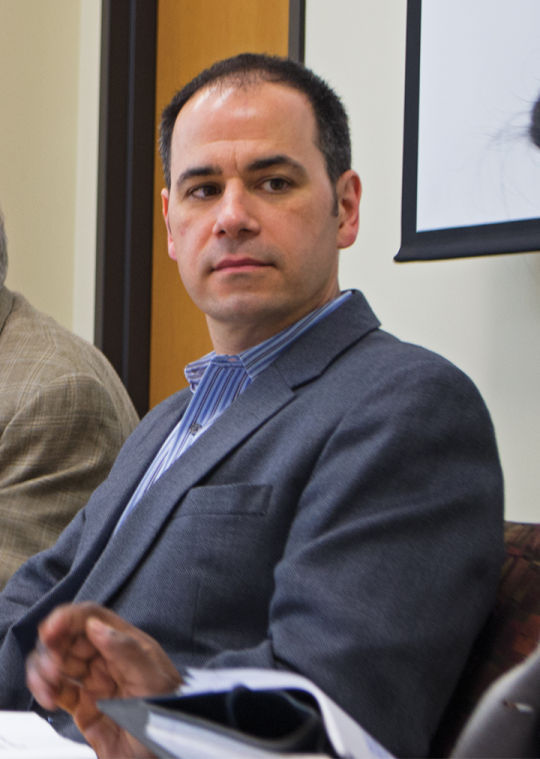
Vincent Novara
The University Senate Executive Committee preliminarily approved a series of policy recommendations on sexual misconduct yesterday.
The recommendations, compiled by the senate’s Sexual Harassment Task Force, include a mandate that all faculty, staff and students participate in a sexual misconduct education and training program. On Oct. 10, the report will go to the full senate for a final vote.
“I think that all the stakeholders will have a chance to weigh in,” said Vincent Novara, senate chairman and member of the task force.
In July 2012, the task force was charged with conducting a thorough review of the university’s sexual harassment policies. Then, in January, committee members added to their deliberations a student proposal to mandate sexual assault education.
The report recommended a multilayered misconduct training operation to begin in the spring, following a pilot program planned for this semester. Though the pilot is still awaiting approval by the university’s Institutional Review Board, it could be in full swing in about a month, said Fatima Burns, coordinator of the University Health Center’s CARE to Stop Violence office.
Students enrolled in the pilot program would be randomly selected for one of four sections: one group that fills out a questionnaire, one that attends a presentation and two that participate in different online modules.
After the task force issued its policy recommendations to university President Wallace Loh earlier this year, Loh directed the university’s legal office to draft revised sexual misconduct policies. Those were adapted in the interim, pending senate action on the task force’s report at the Oct. 10 meeting.
Cynthia Hale, the task force chair, said the federal Violence Against Women Act reauthorization in March
ultimately made mandated training a requirement for the university.
The report also calls for a “multidimensional” communication effort to raise awareness, the integration of at least 21 university divisions and departments in the rollout of new policies and the establishment of a Title IX compliance office with a full-time coordinator to handle complaints.
Several members of the committee voiced concerns about policy implementation.
Josh Ratner, an undergraduate senator on the committee, said he worried online training could be ineffective.
Hale said that while she initially did not see the Internet as an “appealing option,” she decided it was practical after reviewing research of other institutions, such as the University of North Carolina, Chapel Hill.
Other senators had privacy concerns. The task force suggested creating a database tracking documented instances of sexual misconduct.
Although the database would leave out names, senate parliamentarian Ken Holum worried it would inevitably compromise privacy.
Another committee member, staff senator Julie Parsons, said there was an informational gap in students’ minds that educational outreach would need to fill.
“There’s a lot of misunderstanding among students about what is considered sexual assault, what is considered rape,” said Parsons, a Mental Health Services employee. “Some people might be shocked that they had raped someone because they didn’t realize they had to have consent and the person was drunk — that kind of thing.”
The education outreach could extend to everyone in the campus community, Hale said, but it would be a challenge.
Though the administration, not the senate, will handle implementation, Novara said ideas for a smoother policy introduction would likely come out of the Oct. 10 full-senate meeting.
Sexual misconduct has shifted swiftly into the public eye over the past few years, as the U.S. Department of Defense and Department of Education, in particular, have engaged the issue.
“As we were working, the ground was continually shifting,” Hale said.
The task force’s report said integration of the education mandate and other recommendations should start in the spring. Burns said the CARE to Stop Violence program would be ready to take on an expanded role.
“It’s a good idea for students to be aware of their options and their resources on campus,” Burns said. “We are preparing to be ready full-force when the mandate comes out.”



